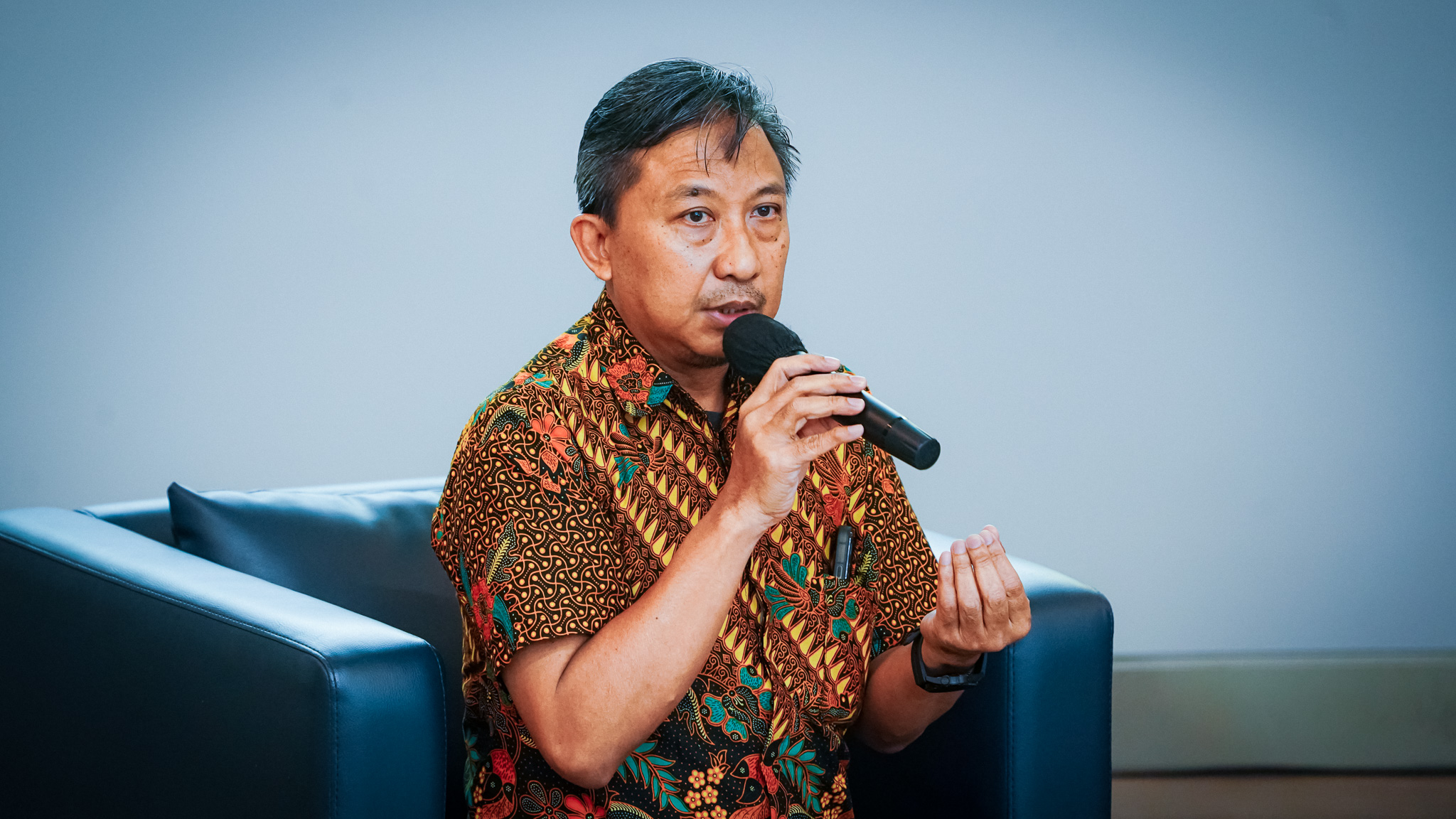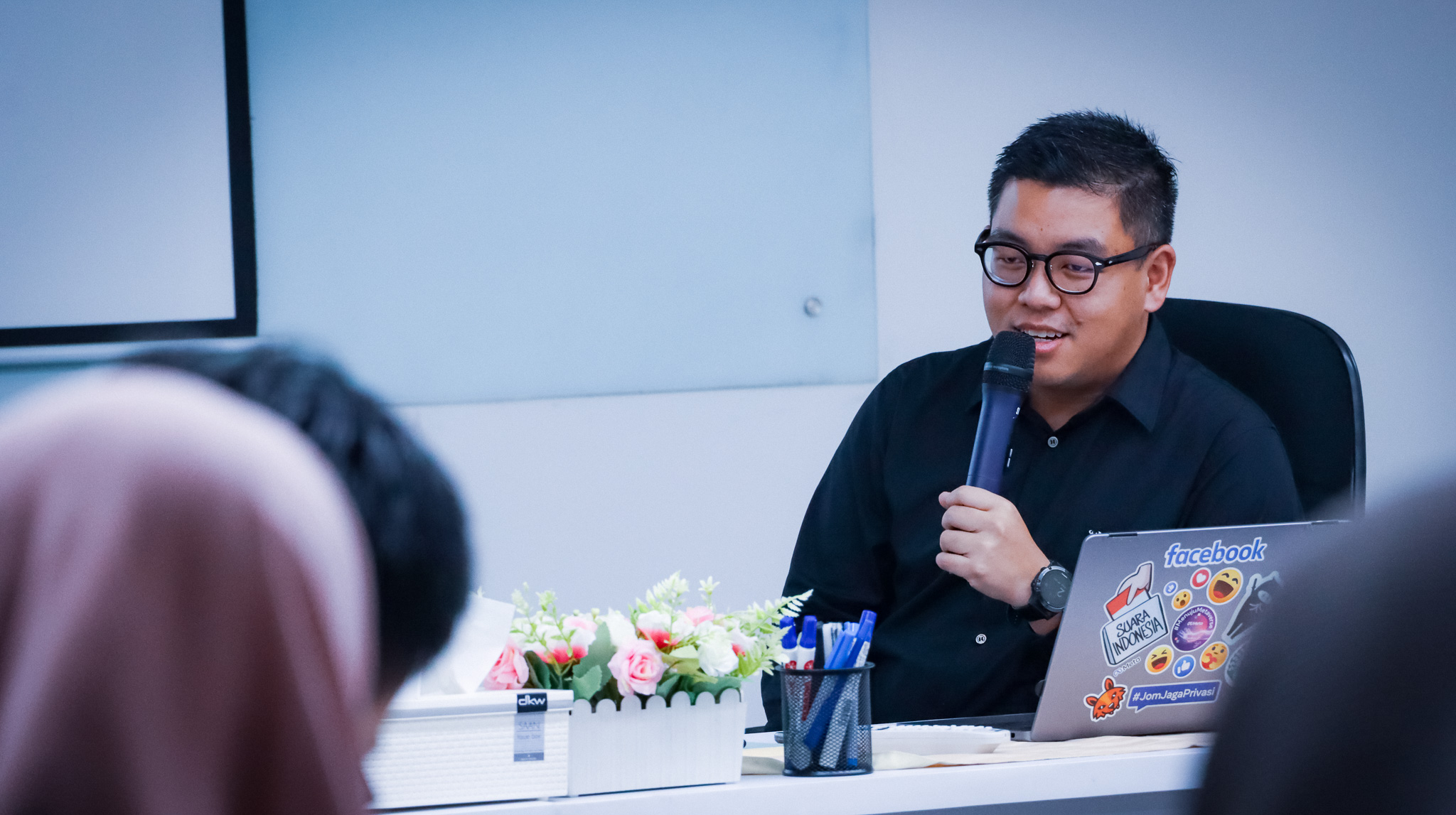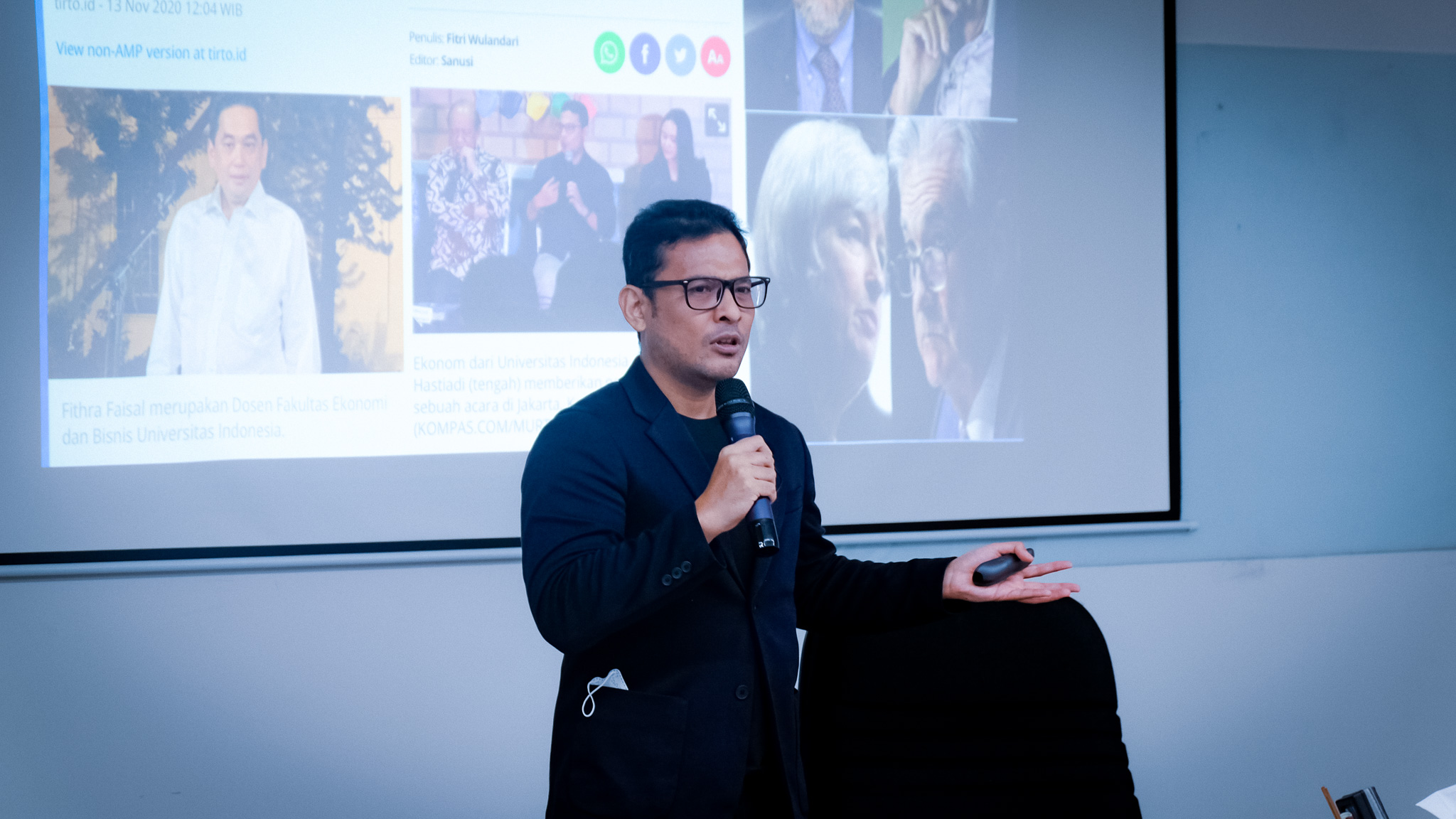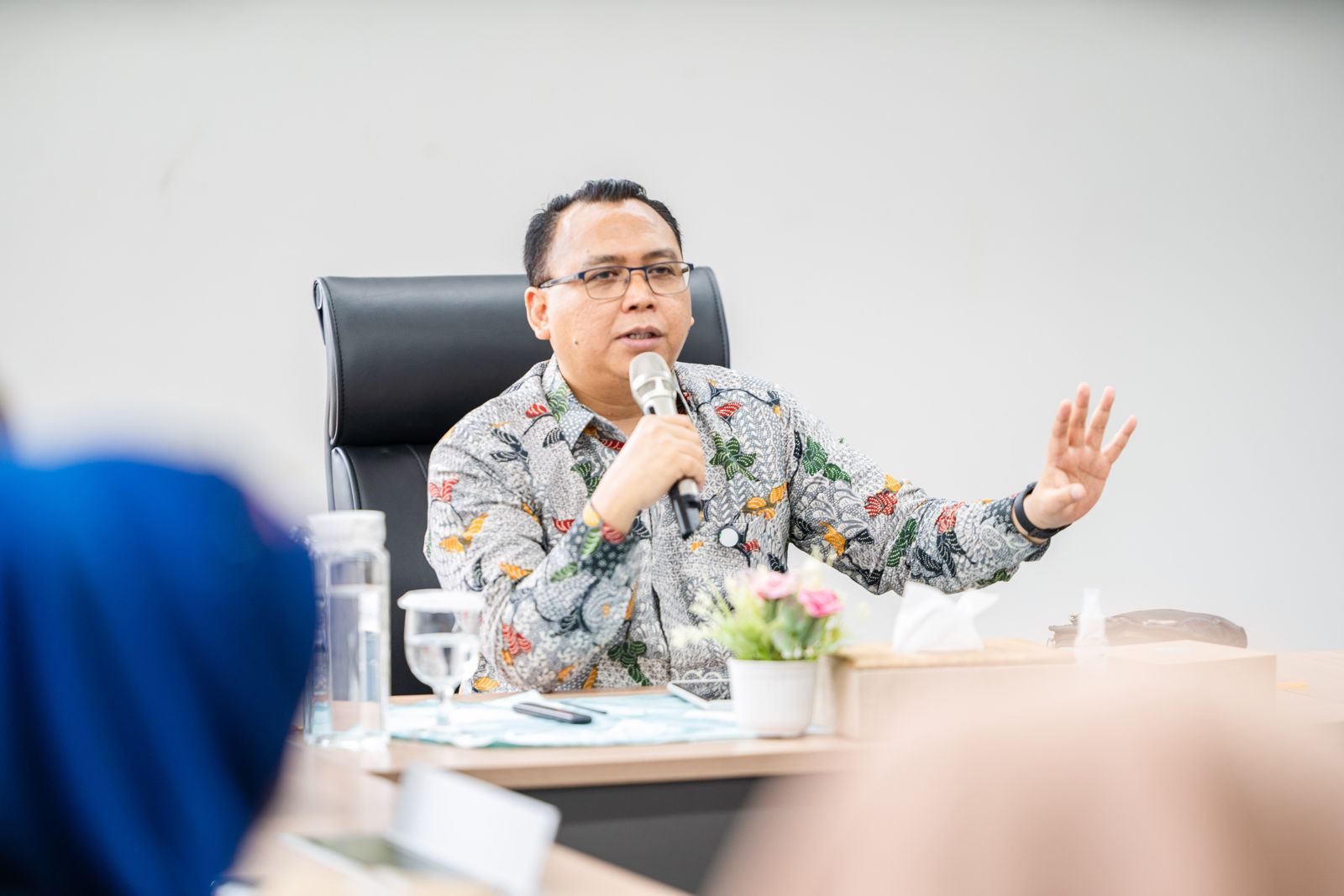Navigating the Future of Indonesia’s Logistics Industry
March 31, 2023Contributor: Safiullah Junejo | Editor: Supriyono

The Faculty of Economics and Business (FEB) at the Universitas Islam Internasional Indonesia (UIII) held on April 30, 2023, an exclusive session on Indonesia’s logistics and transportation industry, inviting Mr. Andries K. Indrajaya, the Vice President of Technology at the logistics and expedition firm PT Jalur Nugraha Ekakurir (JNE).
Held as part of the faculty’s EconInsight & BizTalk program, Mr. Indrajaya provided some compelling insights into the future of the industry, focusing on the challenges and opportunities brought by the rapid technological advancements.
Mr. Indrajaya viewed that the industry is expected to witness some significant changes in the next 5-10 years, given the rapidly advancing technology. Thus, he argued that the biggest challenge of the industry will be to adapt to these changes.
“The industry will need to embrace new technologies such as autonomous vehicles, drones, and blockchain technology to stay competitive. These technologies will help increase efficiency and reduce costs, but they will also require significant investment and new skill sets,” he emphasized.
Another thing to ponder, the industry also needs to address the increasing concern about the environmental impact of transportation. He explained that the industry must take steps to reduce its carbon footprint by adopting more sustainable practices, such as using alternative fuels, improving energy efficiency, and implementing green supply chain practices.
However, balancing environmental sustainability with the need to remain profitable would be a significant challenge for businesses, he noted.
During the session, Mr. Indrajaya also discussed various strategies for managing risk and ensuring supply chain resilience, particularly in light of recent disruptions like the COVID-19 pandemic. He emphasized the importance of diversifying suppliers and building strong relationships with them to ensure continuity of supply. He also recommended adopting a flexible and agile approach to supply chain management to be able to quickly respond to unexpected events.
Mr. Indrajaya pointed out that the COVID-19 pandemic had exposed the vulnerabilities of global supply chains and emphasized the need for businesses to reassess their supply chain strategies. He recommended adopting a risk-based approach to supply chain management, which involves identifying and prioritizing risks and developing contingency plans to address them.
The session with Mr. Indrajaya is part of EconInsight & BizTalk program held by UIII’s FEB faculty. A day earlier, the faculty hosted another session with Mr. Agil Yudawan, a business development manager at Technip Energies to address issues in Indonesia’s renewable energy industry.
- Grit, Innovation, and Adaptation: Key Themes in FoE’s 3rd Graduate Forum for Education Future
- Student-Led Research Community Series Kick Off with Academic Publishing Session
- Advancing Institutional Governance through Risk Management Training
- A Night of Unity: International Iftar Brings Students Together in Celebration
- Vice Minister Joins Iftar with UIII International Students, Hearing Their Stories
- FisFastFest Showcases ‘TransformMe’ Spirit with Intense Quiz Competition
- Ramadan Unites Us: UIII Hosts Iftar Gathering to Strengthen Bonds
- It’s Time for Africa! UIII Aims to Expand Outreach in African Continent
- Future Innovators Gather at UIII for 1000x Challenge Mentoring & Briefing
- UIII and Al-Azhar Strengthen Ties for the Advancement of Islamic Civilization


